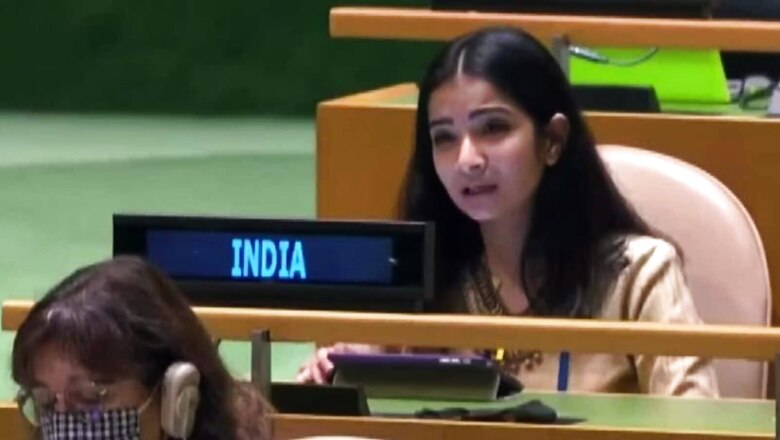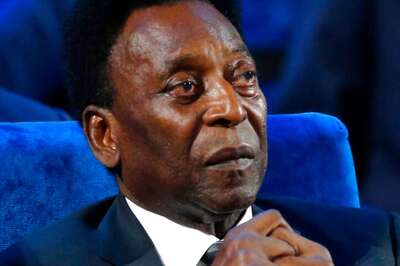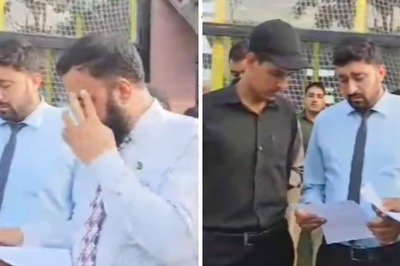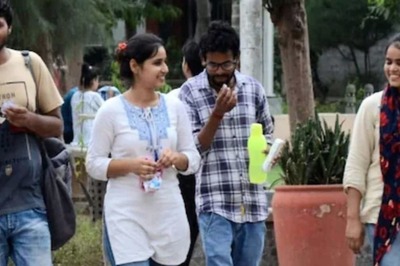
views
India has finally taken the stand it should have taken seven decades ago. India’s First Secretary at the UN Sneha Dubey asked Pakistan to “immediately vacate Pakistan-occupied Kashmir”, even as she exposed Pakistan’s reality in response to Imran Khan’s references to Kashmir at the UN.
“Pakistan is an arsonist, disguising itself as firefighter. Minorities of Pakistan live in constant fear and state-sponsored suppression of their rights,” First Secretary Sneha Dubey said at United Nations, exercising the ‘Right of Reply’ in response to Imran Khan’s statement. She added that the Member States are aware that Pakistan has a “policy of harbouring, aiding and actively supporting terrorists”.
“This is a country that has been globally recognized as one openly supporting, training, financing and arming terrorists as a matter of State policy. It holds the ignoble record of hosting the largest number of terrorists proscribed by the UN Security Council,” she said.
India’s strong response came hours after Imran Khan raked up the Kashmir issue during his address to the UN General Assembly’s annual high-level debate.
ALSO READ | Without Naming Pakistan, Quad Sends a Warning, Sets the Tone for AfPak Engagement
Interestingly, this development comes ahead of Prime Minister Narendra Modi’s address at the 76th session of UNGA. Modi will be address the United Nations General Assembly in New York this evening.
“Regrettably, this is not the first time the leader of Pakistan has misused platforms provided by the UN to propagate false and malicious propaganda against my country, and seeking in vain to divert the world’s attention from the sad state of his country where terrorists enjoy free pass while the lives of ordinary people, especially those belonging to the minority communities, are turned upside down,” Dubey added.
“We exercise our Right of Reply to one more attempt by the leader of Pakistan to tarnish the image of this august forum by bringing in matters internal to my country, and going so far as to spew falsehoods on the world stage,” she said.
Imran Khan, in a pre-recorded address, had described Islamophobia as a “pernicious phenomenon” and said “the worst and most pervasive form” of Islamophobia “now rules India”. He also said that the “Hindutva ideology” being propagated by the current Indian Government was unleashing “a reign of fear and violence” against Indian Muslims.
Khan stated that “Pakistan desires peace with India, as with all its neighbours”, but sustainable peace is “contingent upon resolution of the Jammu and Kashmir dispute”. Pakistan had “unveiled a detailed dossier on gross and systematic violations of human rights by the Indian Security Forces” in the region, he said.
The onus, Imran Khan said, remains on India to create a conducive environment for meaningful and result-oriented engagement with Pakistan and added that it requires that Delhi reverse its unilateral and illegal measures instituted since August 5, 2019, and ends its “oppression and human rights violations” against the people of Kashmir. He had also asked for “reversing the demographic changes in the occupied territory”.
In reply, Sneha Dubey reiterated that the entire Union Territories of Jammu and Kashmir and Ladakh “were, are and will” always be an integral and inalienable part of India. “This includes the areas that are under the illegal occupation of Pakistan. We call upon Pakistan to immediately vacate all areas under its illegal occupation,” she said.
She slammed Pakistan for suppressing its minority communities and said, “Today, the minorities in Pakistan—the Sikhs, Hindus, Christians—live in constant fear and state-sponsored suppression of their rights. This is a regime where anti-Semitism is normalized by its leadership and even justified.” “Dissenting voices are muzzled daily and enforced disappearances and extra-judicial killings are well-documented,” she added.
She pointed out that India is a pluralistic democracy with a substantial population of minorities who have gone on to hold the highest offices in the country including as President, Prime Minister, Chief Justices and Chiefs of the Army Staff. She also said that unlike Pakistan, India is a country with free media and an independent judiciary that keeps a watch and protects our Constitution.
“Pluralism is a concept which is very difficult to understand for Pakistan which constitutionally prohibits its minorities from aspiring for high offices of the State. The least they could do is introspect before exposing themselves to ridicule on the world stage,” she said.
She also said that India desires normal relations with all its neighbours, including Pakistan. “However, it is for Pakistan to work sincerely towards creating a conducive atmosphere, including by taking credible, verifiable and irreversible actions to not allow any territory under its control to be used for cross-border terrorism against India in any manner,” she added.
India’s Resolution of 1994
It is pertinent to remember here that both houses of Indian Parliament had unanimously adopted a resolution on February 22, 1994, emphasizing that Jammu and Kashmir was an integral part of India, and that Pakistan must vacate parts of the State under its occupation.
Even in that resolution, Parliament had pointed out how Pakistan was “imparting training to the terrorists in camps located in Pakistan and Pakistan Occupied Kashmir, the supply of weapons and funds, assistance in infiltration of trained militants, including foreign mercenaries into Jammu and Kashmir with the avowed purpose of creating disorder, disharmony and subversion.”
The resolution called upon Pakistan to stop its support to terrorism, which is in violation of the Simla Agreement and the internationally accepted norms of inter-State conduct, and is the root cause of tension between the two countries. “Pakistan must vacate the areas of the Indian State of Jammu and Kashmir, which they have occupied through aggression,” the resolution said.
It also expressed “regret and concern at the pitiable conditions and violations of human rights and denial of democratic freedoms of the people in those areas of the Indian State of Jammu and Kashmir, which are under the illegal occupation of Pakistan.”
On behalf of the people of India, the resolution firmly declared that “The State of Jammu & Kashmir has been, is and shall be an integral part of India and any attempts to separate it from the rest of the country will be resisted by all necessary means.”
Abha Khanna, a senior journalist, is Media Director of an independent think-tank Jammu Kashmir Study Centre (JKSC). The views expressed in this article are those of the author and do not represent the stand of this publication.
Read all the Latest News , Breaking News and Ukraine-Russia War Live Updates here.


















Comments
0 comment